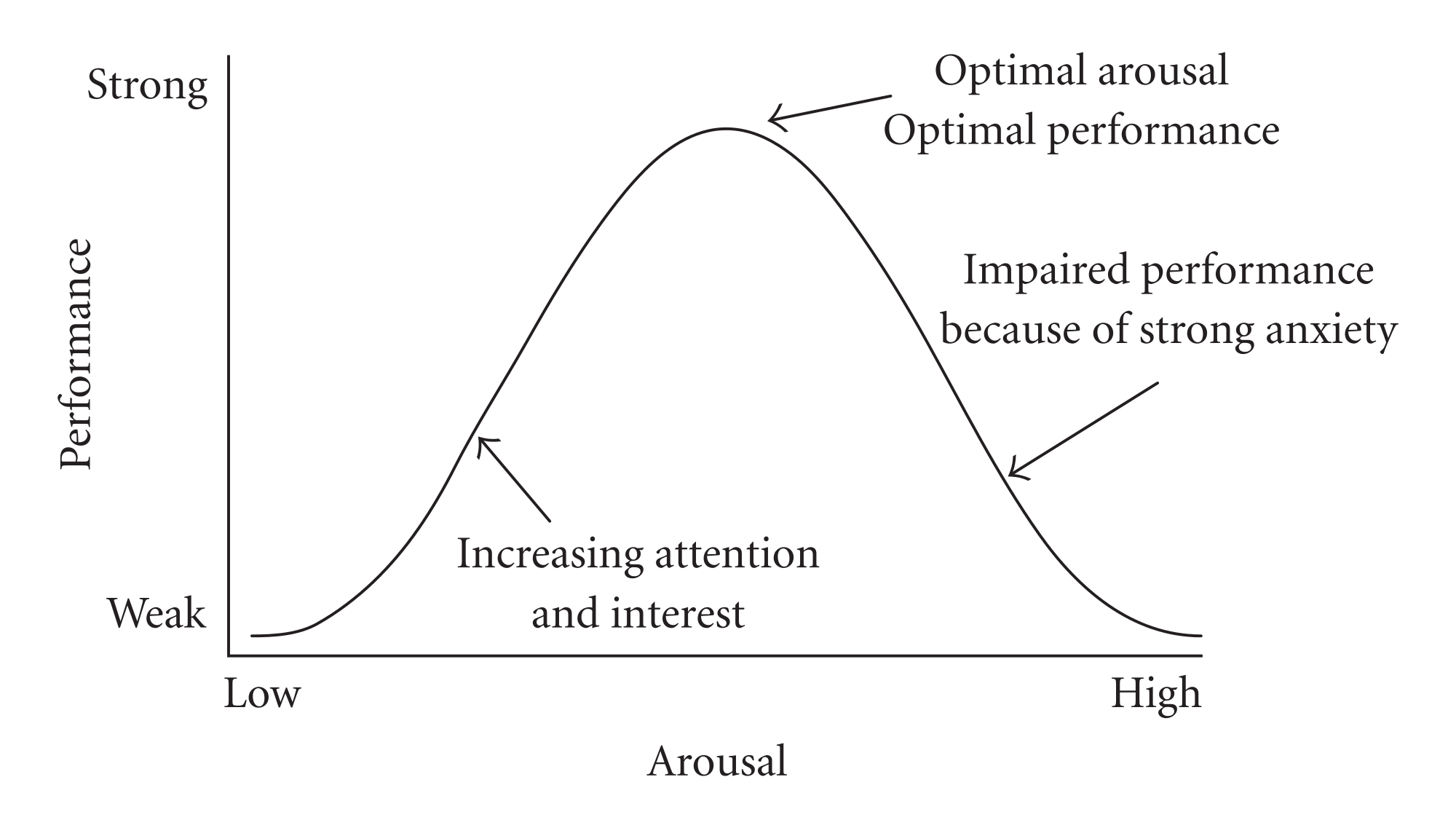
The Yerkes–Dodson law dictates that performance increases with physiological or mental arousal, but only up to a point.
Yerkes-Dodson law was developed by psychologists Robert M. Yerkes and John Dillingham Dodson in 1908.
The Yerkes-Dodson Law states that performance on a task increases with physiological or mental arousal, but only up to a certain point.
Beyond that point, further increases in arousal will lead to a decrease in performance.
This principle can be applied to a wide range of activities, from sports and academics to public speaking and creative pursuits.
At the beginning of the research in the lab, according to Very Well Mind, they discovered that mild electrical shocks could be used to motivate rats to complete a maze, but when the electrical shocks became too strong, the rats would scurry around in random directions to escape.
With higher levels of arousal, the process is typically illustrated graphically as a bell-shaped curve that increases and then decreases.

According to the Yerkes-Dodson law, stress and performance have an empirical relationship, and the optimal level of stress corresponds to the optimal level of performance.
How do you determine what level of arousal is ideal? Depending on the task, this can vary.
"... The anxiety you experience before an exam is one example of how the Yerkes-Dodson Law operates. An optimal level of stress can help you focus on the test and remember the information that you studied, but too much test anxiety can impair your ability to concentrate and make it more difficult to remember the correct answers. Athletic performance offers another great example of the Yerkes-Dodson Law. When a player is poised to make an important move, like making a basket during a basketball game, an ideal level of arousal can sharpen their performance and enable them to make the shot. When a player gets too stressed out, however, they might instead "choke" and miss the shot...." - Very Well Mind
When arousal is very high or very low, performance tends to suffer. An optimal arousal level depends on the complexity and difficulty of the task.
According to the Yerkes-Dodson law, a simple task is best performed when arousal levels are relatively high (to increase motivation), while complex tasks are best performed when arousal levels are low (to facilitate concentration).
Basically, as mentioned before, The Yerkes-Dodson Law is a principle that states that our performance in tasks improves as our level of excitement or energy increases, but only up to a certain point.
Beyond that point, further increases in energy will actually cause our performance to decrease. This idea can be applied to many areas of our lives, like sports, school, public speaking, and creative projects.
This law can affect our work as well. Sometimes, we might get too stressed or worried while on the job, which can cause our productivity to suffer, our decision-making to be poor, and lead to burnout.
On the other hand, if we are too relaxed or not engaged, it can also affect our performance.
To overcome this, it's important to find the right balance of excitement or energy for ourselves. This can be done through stress management methods like mindfulness, exercise, and time management.
We should also set achievable goals for ourselves and break big tasks into smaller ones. It's also important to find a balance between work and leisure to avoid burnout.
Additionally, we can practice handling stressful situations and develop a positive attitude toward challenges, so we can perform well even when under pressure. Techniques like visualization, positive self-talk, and goal setting can also help.
Overall, understanding the Yerkes-Dodson Law and how it can affect our work can help us identify and overcome the negative effects of stress and anxiety.
By finding the right level of energy and excitement, setting realistic goals, and learning how to handle pressure, we can improve our performance and be successful in our careers.
I am incredibly grateful that you have taken the time to read this post.
Your support and engagement mean the world to me, and I truly appreciate your interest in the topics I write about.
I hope that you have found this post informative, educational and engaging.
If you are interested in reading more of my work, please visit other articles here on the website.
I promise to continue providing valuable and high-quality content for your enjoyment and education.
Thank you again for reading and I hope to see you soon!
Here are some related articles you may enjoy:
There are even more good things I've prepared for you!
Subscribe below or click here to receive new posts in your Email!
Do you want to read some book notes and recommendations? Discover more here!
Do you want to have amazing weekly content curation? Discover more here!
Ready to make a positive impact?
Support my work by sharing my content with your network.
Your simple act of kindness can reach new heights and help spread valuable information.
Want to show your support in a tangible way? A virtual coffee is a small but mighty way to show your appreciation and give me the extra energy to keep crafting valuable content!



